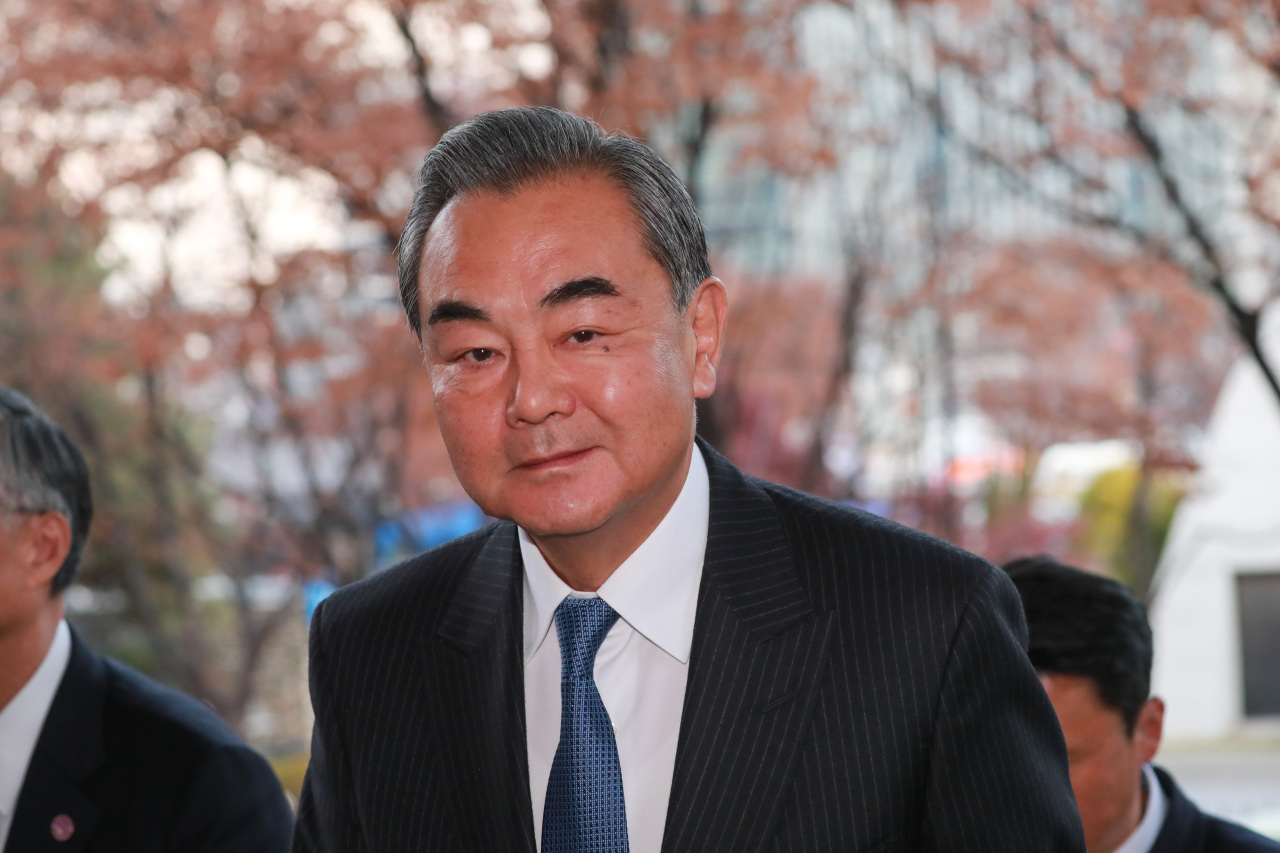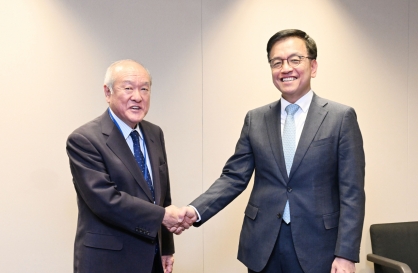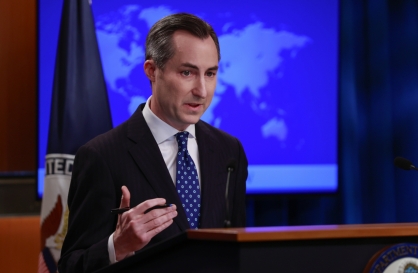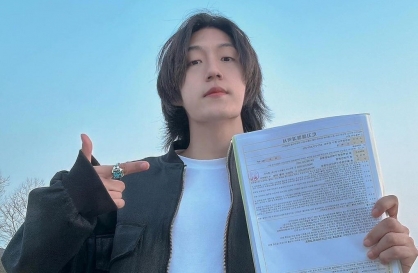Chinese Foreign Minister Wang Yi said Wednesday that Seoul and Beijing should strengthen their cooperation to protect the international order that he said had been threatened by unilateralism, amid the neighbor’s ongoing trade war with the United States.
During a meeting with South Korean Foreign Minister Kang Kyung-wha, Wang apparently asked Seoul to join Beijing in the fight against unilateralism and protectionism, a reference to US President Donald Trump’s economic policy, and criticized such moves as challenging global stability and peace.
 |
Chinese Foreign Minister Wang Yi arrives at the South Korean Ministry of Foreign Affairs in Seoul, Wednesday. (Yonhap) |
“Along with all responsible countries, including South Korea, China will uphold the ideology of multilateralism, principles of fairness and justice,” Wang said.
Wang stressed the strong bond between neighboring countries to enhance regional stability.
“Regarding the current international situation replete with uncertainties, and against the backdrop of changes never seen in the past 100 years, the neighbors should strengthen their mutual visits much more, enhance cooperation and understand and support each other, and have to work together to safeguard our legitimate rights and play a constructive role for regional peace and stability,” he said.
The Chinese minister arrived in Seoul on a two-day visit. Following a bilateral meeting with Kang, they were scheduled to have dinner. On Thursday, he will pay a courtesy visit to President Moon Jae-in.
This is Wang’s first official visit to Seoul since May 2014.
The rivalry between Beijing and Washington has intensified in economic and security arenas. US President Donald Trump is pressuring China on trade and seeks to limit business with Chinese tech giant Huawei by blacklisting the company on national security grounds.
There has been speculation that Wang may use the Seoul trip to warn against any move by South Korea to bolster the US’ influence in the region or strengthen its military foothold through such decisions as hosting intermediate-range US ballistic missiles.
Kang said both countries have a shared understanding of the need to improve their cooperation. Following Seoul’s decision to deploy the US Terminal High Altitude Area Defense anti-missile system here in 2016, which Beijing sees as a security threat, the relationship between the two countries grew rocky.
“Through today’s talks, I expect that we can have in-depth exchanges of views on ways to enhance practical cooperation in the economy, environment, culture and people-to-people exchanges, and ways to cooperate over the denuclearization of the peninsula and the establishment of peace,” she said.
According to a Foreign Ministry official, the two were not able to confirm a summit between President Moon Jae-in and Chinese leader Xi Jinping during the meeting. Seoul hopes the summit will take place on the occasion of Moon’s visit to China for a trilateral meeting involving Japan in Chengdu next month.
Kang and Wang agreed to strengthen communication to help North Korea make progress in nuclear talks with the US, under the common understanding that the North’s possession of a nuclear program is unacceptable; peace in the Korean Peninsula should be maintained; and a war should not break out.
The ministers discussed ways to fully restore their relations including easing Beijing’s ban on Korean TV programs and films, K-pop and package tours to South Korea, which was imposed to protest the deployment of THAAD.
They agreed to hold deputy minister-level talks in the near future, to foster people-to-people exchanges and cooperative economic projects, according to a ministry official.
Earlier in the day, Kang defended South Korea’s decision to deploy THAAD, saying Seoul’s role is to be a “force for cooperation rather than competition between the US and China.”
“We have never knowingly taken steps to harm others unless it is for our defense or national interests,” she said.
“The setback of 2017 has largely been overcome, though more needs to be done in the tourism and entertainment sectors.”
By Park Han-na (
hnpark@heraldcorp.com)







![[Kim Seong-kon] Democracy and the future of South Korea](http://res.heraldm.com/phpwas/restmb_idxmake.php?idx=644&simg=/content/image/2024/04/16/20240416050802_0.jpg)
